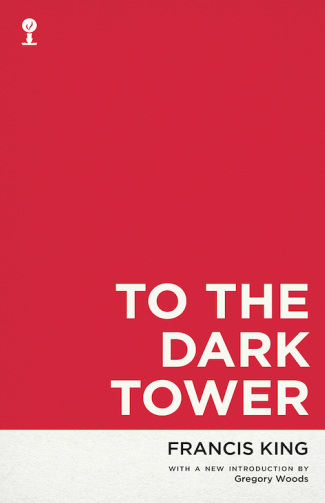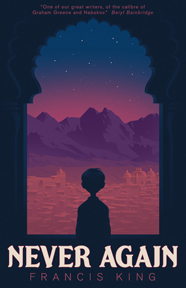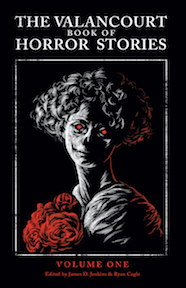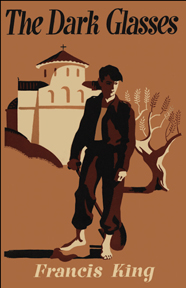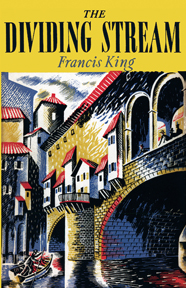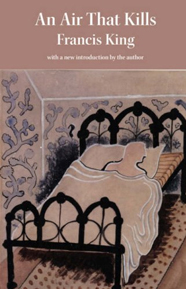|
BOOK DETAILS
Trade paper ISBN-13: 978-1941147337 List Price: $17.99 U.S. Pages: 252 Published: 2014 |
To the Dark Tower (1946)
Francis King With a new introduction by Gregory Woods Due to copyright restrictions, this title is only available to customers in the U.S. and Canada.
Book Description
General Sir Hugh Weigh is a war hero, a celebrated adventurer, and a best-selling author, whose personality has the power to inspire such strong loyalty and devotion that at least one person has willingly died for him. But in private, he is austere, imperious, even cruel, and his cold disregard for others has led to the deaths of his wife and son. Now two more people have begun to feel the force of his compelling nature: Shirley Forsdike, a schoolmistress who is obsessively in love with him, and Frank Cauldwell, a young writer at work on his first novel. Out of the conflict of their emotions and experiences Francis King weaves a gripping story of passion and despair. Beryl Bainbridge hailed Francis King (1923-2011) as “one of our great writers, of the calibre of Graham Greene and Nabokov,” and during a career that spanned seven decades, King published fifty critically acclaimed books, winning a number of literary awards and twice being nominated for the Booker Prize. Though written while he was an undergraduate, King’s compelling To the Dark Tower (1946) displays an assurance and maturity not often found in a first novel. This first-ever American edition features a new introduction by Gregory Woods. |
reviews
“I find on adding up that I have to read over 300 modern novels a year. Half-a-dozen of them I would wish to read again. This is one.” – John Betjeman, Daily Herald
“His creative ability is undeniable.” – Charles Marriott, Guardian
“This young writer’s passionate interest in humanity and its problems is infectious.” – Ralph Straus, Sunday Times
“His creative ability is undeniable.” – Charles Marriott, Guardian
“This young writer’s passionate interest in humanity and its problems is infectious.” – Ralph Straus, Sunday Times
ALSO AVAILABLE THROUGH ONLINE RETAILERS
MORE TITLES BY THIS AUTHOR
AUTHOR BIOGRAPHY
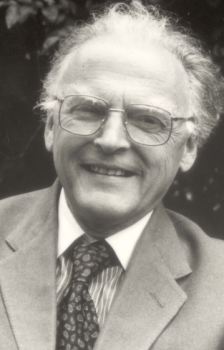
Francis King was born in Switzerland in 1923 and spent the first eight years of his life in India before being sent back to England to a boarding school. A bright student, he earned a Classics scholarship to Balliol College, Oxford, but later changed to English literature, and published his first novel, To the Dark Tower (1946) while still an undergraduate. This novel, and his next two, Never Again (1947) (an autobiographical novel based on King’s childhood) and An Air That Kills (1948), were published by Home and Van Thal, which then went bankrupt, but not before King had established himself as a promising young novelist.
Beginning in 1949, King worked for the British Council and travelled extensively, including to Italy, Greece, and Japan, all of which would provide settings for his novels. His next book, The Dividing Stream (1951), set in Florence, won the Somerset Maugham Award and cemented King’s status as one of the bright young literary stars of his generation. During the 1950s and 60s, King published a string of excellent works, including The Dark Glasses (1954), The Man on the Rock (1957), The Widow (1957), The Custom House (1961), and The Waves Behind the Boat (1965).
In 1966, King resigned from the British Council to devote himself to writing full-time and supplemented his income by writing book and theatre reviews and working as a literary adviser to the publishing house of Weidenfeld & Nicolson.
He continued to write prolifically, and notable highlights include the gay-themed novel A Domestic Animal (1970), which drew a threat of a libel action, The Action (1978), which narrowly missed the Booker shortlist, and Act of Darkness (1983), which, unlike many of King’s books—which were always well-received critically—was relatively successful commercially.
King went on writing until his death in 2011, making the Booker longlist with The Nick of Time (2003) and publishing a revised 60th anniversary edition of An Air That Kills with Valancourt Books in 2008; his final novel, Cold Snap, appeared in 2010.
Beginning in 1949, King worked for the British Council and travelled extensively, including to Italy, Greece, and Japan, all of which would provide settings for his novels. His next book, The Dividing Stream (1951), set in Florence, won the Somerset Maugham Award and cemented King’s status as one of the bright young literary stars of his generation. During the 1950s and 60s, King published a string of excellent works, including The Dark Glasses (1954), The Man on the Rock (1957), The Widow (1957), The Custom House (1961), and The Waves Behind the Boat (1965).
In 1966, King resigned from the British Council to devote himself to writing full-time and supplemented his income by writing book and theatre reviews and working as a literary adviser to the publishing house of Weidenfeld & Nicolson.
He continued to write prolifically, and notable highlights include the gay-themed novel A Domestic Animal (1970), which drew a threat of a libel action, The Action (1978), which narrowly missed the Booker shortlist, and Act of Darkness (1983), which, unlike many of King’s books—which were always well-received critically—was relatively successful commercially.
King went on writing until his death in 2011, making the Booker longlist with The Nick of Time (2003) and publishing a revised 60th anniversary edition of An Air That Kills with Valancourt Books in 2008; his final novel, Cold Snap, appeared in 2010.

